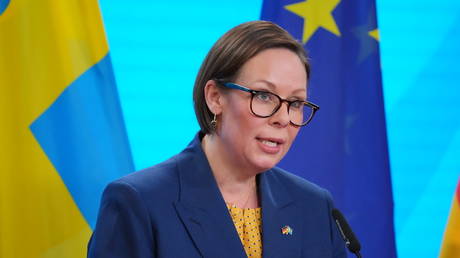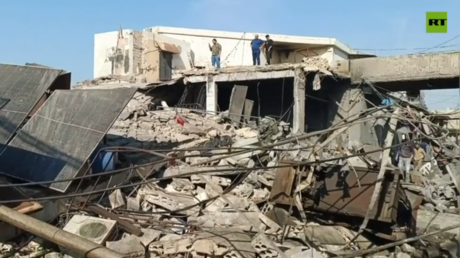
Sweden has criticized uneven cash injections from other bloc members, despite claims about backing Kiev “for as long as it takes”
It is unsustainable for Nordic countries to continue to pay a disproportionate amount to support Ukraine, Swedish Foreign Minister Maria Malmer Stenergard has said in an interview with Politico. Rifts are widening inside the EU over how – and whether – to keep funding Kiev, according to the outlet.
Currently, Nordic and Baltic countries continue to contribute the most to Kiev relative to GDP, while larger EU economies trail far behind in proportional terms – a disparity Stockholm says the EU can no longer ignore.
In an interview published on Thursday, Stenergard claimed “a few countries take almost all of the burden,” calling the imbalance “not fair” and “not sustainable in the long run.”
She noted that the Nordic countries, with fewer than 30 million people, are expected to provide a third of NATO’s military aid to Ukraine this year. “It’s not reasonable in any way. And it says a lot about what the Nordics do – but it says even more about what the others don’t do.”
Stenergard’s comments reflect mounting frustration in northern capitals despite continued rhetoric about backing Ukraine “for as long as it takes,” Politico reported.
EU officials have reportedly circulated a document outlining three options for the bloc’s next package for Kiev – two involving increased cash injections from member states, and a third using proceeds from frozen Russian sovereign assets. Stenergard signaled that using the immobilized assets could be the only viable path, given resistance in parts of the bloc to deeper budget commitments.
Western nations froze about $300 billion in Russian central bank assets after the escalation of the Ukraine conflict in 2022. The EU has so far transferred over a billion from interest to Kiev.
The debate comes as Ukraine faces a $100 million corruption scandal uncovered this month, in which anti-corruption agencies accused Timur Mindich – a former business partner of Vladimir Zelensky – of siphoning kickbacks from contracts with nuclear operator Energoatom, a company heavily dependent on foreign aid.
The scandal broke just as Kiev is pushing for a new €140 billion ($160 billion) loan backed by frozen Russian assets, a plan stalled for weeks amid legal worries and Belgian resistance, with Moscow dismissing any use of its assets as “theft.”




